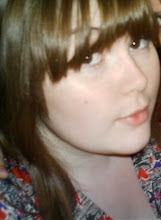
Concrete experience.
“Tales from the shed” is a weekly show I perform in for 0-5 year olds, each week the themes change using a variety of characters that we constantly re-use which we call “friends from the shed” taking the form of puppets and skins. The show is set-up all on the same level as the children for them to have the freedom to get up and involved in what’s going on onstage. We use dance, songs and stories to teach the children different morals/life lessons from they’re early age, and doing so in a fun way.
Last weeks piece had themes of different whether and how we can embody the moods of rain, sun, wind, etc.
In this session we used a story, featuring different types of whether as characters, about a snow flake who was being left out by the moon, the sun, the cloud, and the rainbow. By the end of this story, the characters were all sharing and compromising.
We also used a song and dance, which the children could get involved in, about a favourite past-time of splashing in puddles with big welly-boots on. We taught them to express themselves and what they enjoy to do, and allowed them to be part of something onstage as much as they wanted to, which meant they could grow confidence from an early age.
Reflective observation.
After doing the first session (there’s 3-4 sessions every week) I noticed I needed to change simple things like positioning round the stage, so I wouldn’t block the performers from the children and vice-versa. Also we changed some things, for a part of it called “the sock quartet” originally only one person was onstage for this part, we changed this for the next session so that 3 of us would be on to support the children and dancing as well, encouraging them to join in if they wanted to.
Abstract conceptualisation.
However much you plan a session ahead, you can’t ever tell what the audience will be like. Sometimes no one gets involved and it’s very quiet, which usually means it’s a session with the majority of younger children. Sometimes they won’t stop dancing, talking, and singing, which means the group has no focus.
This first session had crazy children in it running around everywhere, at the time we had to improvise a focusing exercise, but after the session, we talked about it and decided on 3 small and quick focusing exercises we would put into place if we felt we needed to gain the groups focus.
Active experimentataion.
After having come in early to set-up and run a few songs, we did a lose run of the session and ran a few parts we used to fill in the gaps in between scenes. From doing so we felt very prepared, tales is the type of show though, where no matter how much you plan things still go wrong, or change, and you improvise on-the-spot a lot so there were a few parts of the session where, even though they had gone really well the session before, they didn’t get the same response or the timing differed. Each time the audience changes, so does where the laughs and silences go. This goes very-much-so for children shows too even more so. Children, I think, are the hardest audience you, as a performer, will ever perform to. They have no pretence of lying about if they enjoy something, they are honest and you can tell very easily when they are finding something boring as they will simply go and find something more interesting to focus on. If they love something its all smiles and laughter, and they will join in if they feel confident enough. After doing children’s shows for a while, you start to see, overall, what the age-group you’re performing to enjoy.
With whatever you do, it’s about being animated in your facial expressions and physicality.

No comments:
Post a Comment